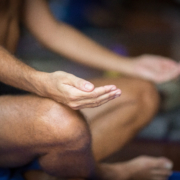 https://samahitaretreat.com/wp-content/uploads/2024/03/DJI_20231220135922_0003_D-scaled.jpg
1920
2560
Kirsten Mia
http://samahitaretreat.com/wp-content/uploads/2024/01/samahita-logo-v2.svg
Kirsten Mia2024-03-20 15:30:592024-03-20 15:30:59Travel, explore, be curious!
https://samahitaretreat.com/wp-content/uploads/2024/03/DJI_20231220135922_0003_D-scaled.jpg
1920
2560
Kirsten Mia
http://samahitaretreat.com/wp-content/uploads/2024/01/samahita-logo-v2.svg
Kirsten Mia2024-03-20 15:30:592024-03-20 15:30:59Travel, explore, be curious!5 Tips to Start and Maintain a New Healthy Habit
Life as we know it has been on what may feel like an endless pause. For many of us this has been cause to reflect on how, like it or not, we’ve landed in this exact point in time through our every choice, habit, action and reaction so far in life. We may wonder what the greater meaning in all of this is. Does Mother Earth have a message for humanity? Have we been far too distracted from what really matters in life? Are we being given the chance to take a good look at ourselves?
We can also decide to view this time as a unique opportunity to assess, clean up and realign some of our habits as our path in life is ultimately driven by our daily actions. You become the habits you practice. To live in alignment with your path or purpose in life and what you are here to do feels natural and right yet also takes considerable commitment, brings challenges, and requires ongoing effort and determination. Needless to say, these daily habits are worth looking at if we want to ensure we are on track.
How to Upgrade your Habits
If you are ready to change your habits psychologically it can be easier to think about adding something to your life, enriching it with new ways, rather than taking away, depriving, and giving something up. Are there new healthy habits you have adopted lately you’d like to continue, such as more family time, making conscious efforts to connect with community, working less, a breath practice, dancing, reading, or cooking more? Adding a new habit that brings more value to your life can naturally allow other habits that no longer serve us to drop away.
Of course, the process takes time. Dr. Daniel Amen, a leading psychiatrist and brain health expert in the US suggests it takes around 70 days to retrain your brain from addictions. While a study on the creation of new habits (1) showed that the time to automate a habit varied considerably from 18 to 254 days, so 66 days on average. This may feel a bit disheartening, but it can also be a relief to know that we need to give space to allow the process of a new habit to unfold naturally while simultaneously keeping up the effort. It can take the pressure off. The study also showed that missing doing the new habit once did not actually affect the process. So the odd slip up is ok and you can just jump back in. Good news.
“It takes around 70 days to retrain your brain from addictions”
5 Tips to Help New Habits Stick
- Really Know Why
Know, very clearly, why you want to take on a new habit in the first place. Whether it be healthy cooking for your family’s health, breathwork for stress relief (2), or an activity that simply brings you joy, it should be of high value to you. Having a really strong ‘why’ can be the difference between starting and stopping a habit and keeping it up. Think of it as your long term reward, to remind yourself every day of why you want to embrace this practice or habit, especially the days when you don’t feel like it. - Keep it Simple
Like any goals, intentions or resolutions, if they are not easily achievable they simply will not stick. Don’t be over ambitious and take on too much. Start easy, keep it short and simple, and keep it up every day until it’s embedded in your daily life. - Delay Gratification
To motivate yourself, delay that short term reward of your delicious daily coffee, or allowing yourself some social media scrolling, until after you’ve done what you said you’d do. In today’s instant gratification society, we are so used to attaining what we want immediately that we get hooked on being stimulated through its dopamine hit of pleasure. The effect of this is loss in focus on long term goals as the desire to constantly seek out short term gratification overrides it. Change this by using delayed gratification for better success with your goals and a healthier brain that has more control. - Add to Your Daily Routine
Another helpful tactic is to make your new habit part of your current every day routine by attaching the behavior to something you already do every day. For example, adding breathing exercises before or after your asana (body posture) practice if that’s already a routine you have in place, sitting for 10 minutes of meditation when you come home from work, or dancing before dinner! Associating your new habit with another habit you know you will not miss. - Have Support
Finally, use your support system, whether a friend who wants to join you, a teacher or a family member, to help you stay on track. Always feel free to check in with us here at a Samahita, send in your questions, engage, join our online community, we are here to support. Be open and clear about your goal and hold yourself accountable to what you want to do by sharing it with others and asking for help when needed.
Knowing how to ingrain habits can also support you with your practice at home. At Samahita we provide a solid education and training in breathwork, one of the main reasons students return year after year. Initially, however, some can struggle to keep it up when they go home even with the best of intentions – life gets in the way, they drop the practice, return to learn again, practice for a while, drop it again etc. Eventually it may become ingrained but without the accountability from a teacher that one might have with, for example, an asana practice, it can be harder to really embed the habit. Now may be an excellent opportunity to do just that, if it has been a call for you, using the above tips.
What a gift to give yourself during this time, whether it is a new breathwork practice (3), or a practice you’ve started multiple times and really want to now embed in your life. It doesn’t matter, begin now, with stronger intention and some extra determination.
We have all been given this gift of a reset. A chance to begin again. To realize what is important in life, and to drop needless distractions. A chance to wake up to a new way of doing things, more aligned with our own personal growth and path, if we choose to accept this opportunity in front of us as life begins to open up again. Embrace it and this could be the starting point of a new healthy habit for life.
1. How are habits formed: Modeling habit formation in the real world: https://onlinelibrary.wiley.com/doi/abs/10.1002/ejsp.674
2. Breathwork for anxiety and other difficulties:
https://samahitaretreat.com/breathwork-for-anxiety-and-other-difficulties/
3. Breathing exercise for beginners:
https://samahitaretreat.com/breathing-exercise-for-beginners/
More from the Samahita Blog








